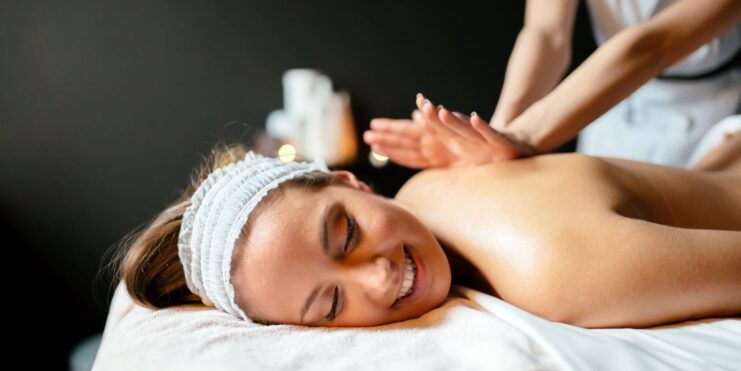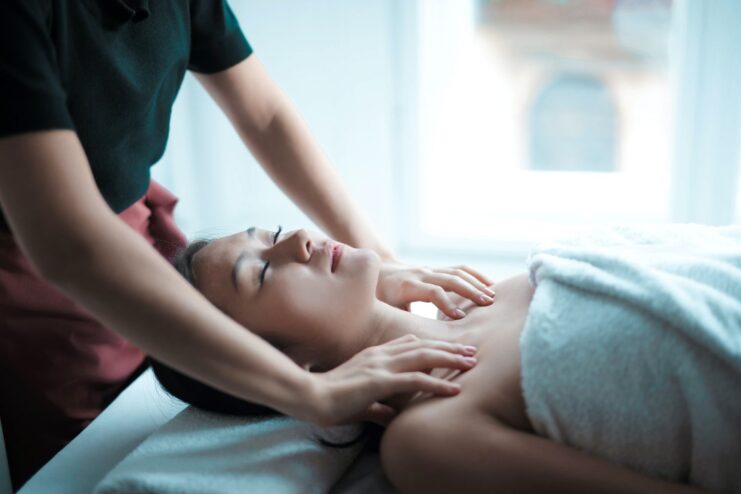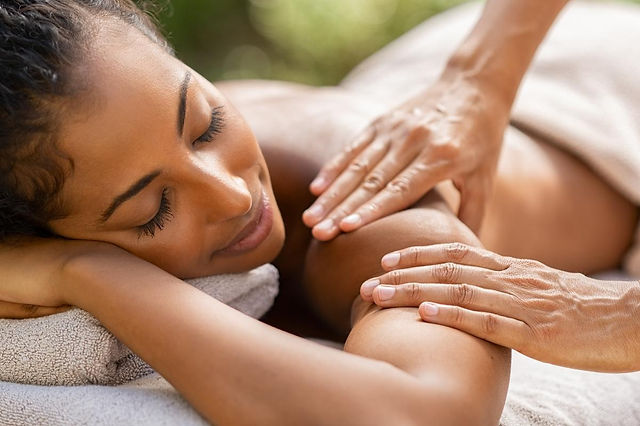In an era where stress and anxiety are prevalent, finding effective ways to manage these conditions is crucial for maintaining mental and physical health. Anxiety, characterized by feelings of tension, worry, and nervousness, can manifest in various forms, affecting individuals’ daily lives and overall well-being.
While traditional treatments such as therapy and medication remain popular, many people are seeking complementary therapies to alleviate their symptoms.
Massage therapy has gained attention as a potential tool for managing anxiety, offering a holistic approach to relaxation and stress reduction.
Understanding the connection between massage and anxiety can help individuals explore this therapeutic option as part of their anxiety management strategy.
What is the link between anxiety and physical aches and pains?

Anxiety often manifests physically, leading to muscle tension, headaches, and fatigue. When the body is in a constant state of stress, it triggers the release of stress hormones such as cortisol and adrenaline.
These hormones prepare the body for a fight-or-flight response, resulting in increased heart rate, shallow breathing, and muscle tension.
Over time, chronic stress and anxiety can lead to physical discomfort and health issues, exacerbating the mental and emotional burden.
Massage therapy addresses these physical manifestations of anxiety by promoting relaxation and reducing muscle tension. Through the application of gentle pressure and soothing strokes, massage helps release muscle knots and improve circulation, which can alleviate pain and discomfort.
The physical relaxation achieved through massage can create a ripple effect, helping to calm the mind and reduce the intensity of anxiety symptoms.
By addressing the physical aspects of anxiety, massage therapy provides a comprehensive approach to managing this condition.
How can massage help reduce stress hormones?

One of the key benefits of massage therapy for anxiety management is its ability to reduce stress hormones. Studies have shown that massage can significantly decrease levels of cortisol, the body’s primary stress hormone.
Lowering cortisol levels not only reduces the physical symptoms of anxiety but also helps improve mood and overall well-being.
As you can see on sites like Makangs, by reducing the body’s stress response, massages like the Yeosu massage (여수마사지) create an environment conducive to relaxation and healing.
In addition to reducing cortisol, massage therapy promotes the release of endorphins, the body’s natural mood elevators. Endorphins are neurotransmitters that create feelings of happiness and relaxation, counteracting the effects of stress and anxiety.
The release of endorphins during a massage session can lead to an improved sense of well-being and reduced anxiety levels. This biochemical shift supports the body’s natural ability to manage stress and promotes a more balanced emotional state.
How can you make a better mind-body connection through massage?
Massage therapy offers more than just physical relaxation; it also enhances the mind-body connection. Anxiety can often cause individuals to feel disconnected from their bodies, leading to a sense of disorientation and discomfort. Through the power of touch, massage therapy helps individuals reconnect with their bodies, fostering a sense of awareness and mindfulness.
During a massage session, individuals are encouraged to focus on their breath and bodily sensations, creating a meditative experience that promotes mindfulness. This mindfulness practice helps individuals become more attuned to their physical and emotional states, allowing them to better manage anxiety and stress.
By cultivating a stronger mind-body connection, massage therapy empowers individuals to recognize and address anxiety triggers, ultimately leading to improved emotional resilience.
The right environment can make the experience and the healing better

The environment in which massage therapy takes place plays a crucial role in its effectiveness for anxiety management. A massage setting is typically designed to be calming and serene, providing a safe space for individuals to relax and unwind. Soft lighting, soothing music, and the use of aromatherapy can enhance the overall experience, creating an atmosphere conducive to relaxation and stress relief.
The therapist-client relationship is also an important aspect of the massage experience. A skilled therapist can create a sense of trust and safety, allowing clients to feel comfortable and supported during their session. This supportive environment encourages individuals to let go of tension and anxiety, facilitating a deeper state of relaxation and healing.
Don’t forget to combine massages with other treatments and methods
While massage therapy offers numerous benefits for anxiety management, it is most effective when used in conjunction with traditional treatments such as therapy and medication. Cognitive-behavioral therapy (CBT), for example, is a widely recognized treatment for anxiety that focuses on changing negative thought patterns and behaviors.
Massage therapy can complement CBT by reducing physical symptoms of anxiety, making it easier for individuals to engage in therapeutic practices.
Similarly, medication prescribed for anxiety management can be more effective when combined with massage therapy.
By addressing both the physical and psychological aspects of anxiety, individuals can achieve a more comprehensive approach to managing their condition.
It is important for individuals to work with healthcare professionals to develop a personalized treatment plan that incorporates massage therapy alongside other interventions.
Why is it important to get continuous treatments?

To experience the full benefits of massage therapy for anxiety management, regular practice is essential. While a single massage session can provide temporary relief, consistent sessions can lead to long-term improvements in anxiety symptoms. Regular massages help maintain reduced stress hormone levels, promote relaxation, and enhance overall well-being.
Incorporating massage therapy into a weekly or monthly routine can help individuals establish a consistent practice of self-care and stress management. By prioritizing regular massages, individuals can create a sustainable approach to managing anxiety, leading to improved mental and physical health over time.
Massage therapy offers a valuable tool for managing anxiety by addressing both the physical and emotional aspects of the condition. Through relaxation, stress hormone reduction, and enhanced mind-body connection, massage provides a holistic approach to anxiety management.
By incorporating massage therapy into a comprehensive treatment plan, individuals can achieve greater relief from anxiety symptoms and improve their overall well-being.
As a natural and non-invasive therapy, massage offers a safe and effective option for those seeking to manage anxiety in a supportive and calming environment. Through regular practice and mindful integration, massage therapy can make a significant difference in the journey toward mental and emotional health.












